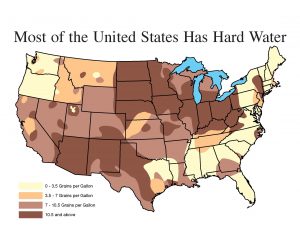Frequently Asked Questions
Below are brief answers to frequently asked questions on WCC’s (Water Control Corporation) residential water treatment systems for water softening, filtration and disinfection. Check back for ongoing updates. Have a question we don’t have listed here that you would like answered, please email our technical support team.
Water Softener Information

- Why should I buy a BrassMaster Brand Water Softener?
At Water Control, we don’t take a “one size fits all” approach to residential water softeners. Every sale begins with comprehensive water testing and an analysis of water usage within that family/home. Until we know all the facts, we don’t match the equipment. - What is Hard Water?
Hard water is formed when water percolates through deposits of limestone and chalk which are largely made up of calcium and magnesium carbonates. Hard water also forms deposits that clog plumbing. The resulting build-up of scale restricts the flow of water in pipes. In boilers, the deposits impair the flow of heat into water, reducing the heating efficiency and allowing the metal boiler components to overheat. - Why soften my water?
Soft water greatly reduces the scaling of pipes, faucets, and bath fixtures, and reduces spotting of glasses, dishes and flatware. Soft water also helps detergent clean your clothes better, while making your clothes last longer too! You can reduce your laundry detergent, dishwashing soap, hand soap and shampoo to half what you would normally use, not to mention soft water is much more pleasant to wash with, leaving less soap scum on you, and your tub/shower.
What problems can a water softener help with? - Why does my water smell like Rotten Eggs even after my water softener?
Hydrogen Sulfide gas is an element often found in private well systems. BrassMaster Megabite Iron Filters use oxygen injection to remove damaging minerals and unpleasant odors in a natural, effective, environmentally friendly manner. - How long will my water softener last?
When the resin beads begin to breakdown, it can no longer effectively soften the water. In generic water softeners, this can begin to happen in as little as 6 to 8 years. However, with a more advanced water softener from Water Control Corporation, which is equipped with higher quality parts and resin, the life expectancy is upwards of 20 to 25 years.
Water Softener Maintenance
- Why does my water softener use salt? What type of salt should I use?
The softener operates using an “ion exchange” process. When hard water contacts the cation resin beads, by passing through the softener mineral tank which have soft sodium/potassium ions attached to them, an ion exchange process takes place with the hard mineral ions, (normally calcium and/or magnesium), and during this contact, simply trade places with the soft sodium/potassium ions. *Purchasing bags of high-quality evaporated salt pellets will mean fewer cleaning and maintenance issues and will also help you achieve better results with your water softener.*
What salt to use in my softener? - Why does it seem like my salt level is not going down in the brine tank?
Sometimes, a hard crust or salt bridge forms in the brine tank. Too much salt in the softener usually causes high humidity. When the salt bridges, an empty space forms between the water and the salt. Salt will not dissolve in the water to make brine. Without brine, the resin bed does not regenerate and you will have hard water and no salt usage. - When I look at the BrassMaster control unit I see a faucet flashing, do I need my water softener serviced?
The digital display should be alternating between the current time of day setting and a number which indicates the gallons left until the next regeneration. You will also see the “in service” icon which appears as a small faucet in the bottom left corner of the display window. When this icon is flashing, it means that it is set to regenerate at the set regeneration time. This is also known as “RT” in the programming settings.
How do I know if my water softener is working? - Why did my iron filter stop working?
City Water
- My city’s public water system has started using chloramines. What are Chloramines? Should I be concerned?
Chloramines are a group of chemical compounds that contain chlorine and ammonia. The particular type of chloramine used in drinking water disinfection. Most tap water conditioners will break the chemical bond between the chlorine and ammonia and then destroy the chlorine, leaving the ammonia in the water. Water Control Corporation’s MultiMax unit can remove these undesirable additives and softens your water at the same time.
WCC’s (Water Control Corporation) residential technical support for water softening, filtration, and disinfection systems can be reached by dialing our main number at (763) 427-9638 or 1 (866) 405-1268. You may also email our technical support team to ask questions on you water treatment system.

